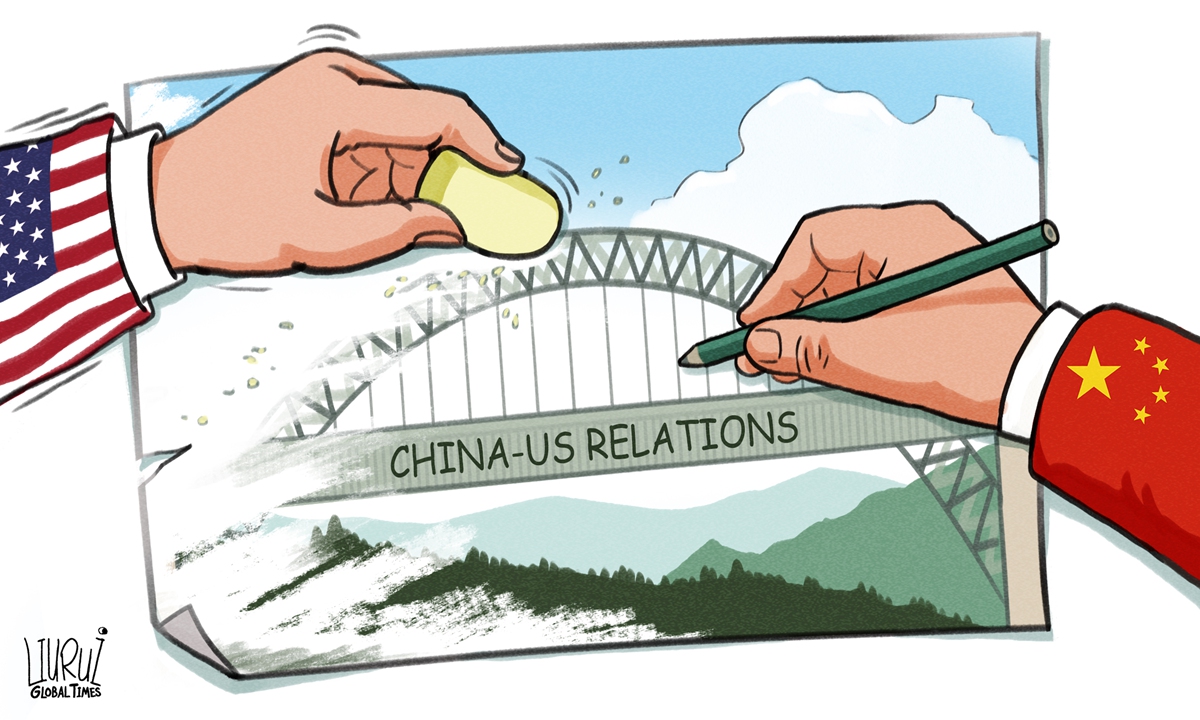 Why has the US unexpectedly turned against China? Is there still room for China and the US to ease tensions and avoid an all-out confrontation?
Why has the US unexpectedly turned against China? Is there still room for China and the US to ease tensions and avoid an all-out confrontation?This is the most common sentiment among US political elites: The US has been in contact with China since the early 1970s, and has long believed that the market economy boom, brought by such contact, will eventually lead to the so-called political liberalization in China. However, they are completely disappointed now.
We believe such an explanation is the US elites' selective self-beautification, as well as their moral mobilization of the US and the Western world's confrontation with China.
The détente in the China-US relations started with former US president Richard Nixon's China visit in 1972 during the peak of the Cold War. The US, forced by the Cold War, had to take the initiative to approach China. At that time, China had a sharp ideological confrontation with the West. But the rapprochement of China-US relations reshaped the geopolitical structure of the Asia-Pacific region and affected the trend of the Cold War. This was Washington's true purpose.
After China's reform and opening-up in late 1970s, China and the US formed a wide range of contacts. But until the end of the 1980s, the US' biggest consideration for China had been using China's power to accumulate bargaining chips against the Soviet Union.
After the end of the Cold War and throughout the 1990s, Washington's strategic focus was to digest its achievements during the Cold War. China, as an emerging market, attracted the huge interest from the US during that period. The US conservative elites have never given up hostility toward China, but the huge potential of the Chinese market prevented the spread of such hostility.
After the US' counter-terror war, the sense of major power competition was strengthened again in the US. China's rise has gradually reached the critical point of US strategic tolerance. The Trump administration considers China the US' largest strategic competitor. US policy toward China has undergone a fundamental reversion.
The US never faced a country like China before - a huge country with rapid development and unlimited potential. Washington's political elites are panicking. Their Cold War mentality has been fully mobilized. The US' hegemonic interests have been placed in an overwhelming position in the China-US relations, and the two countries' huge economic interests have been relegated to the back seat. It seems the US has suddenly returned to the 20th century.
China also has no experience in interacting with the world hegemony. In the face of the US' fierceness, should we try to calm it down, or should we do our own thing well and counterattack? This is what we need to explore.
However, we believe China's overall innocence will affect the development of the situation for a long time to come. That China is growing into a major country is driven by Chinese people's desire to get rid of poverty and become prosperous. It is not a conspiracy campaign to overthrow the US. China's military development is also in line with its expanding strategic risks and its need to protect national interests. China is still a strategically defensive country without any ambition to expand. Our "toughness" is a strategy to protect our core interests, not to reset the world order.
The US has seriously misjudged China's strategic motives. China is a huge society, and internal affairs have been the country's focus of governance. The Communist Party of China (CPC) is the core force leading the Chinese people to fulfill arduous tasks. Since the 18th National Congress of the CPC held in 2012, the anti-corruption campaign has profoundly changed the style of government, the information industry has brought convenience, and China has also taken steps in new countryside construction, and fairness and justice. China has also adequately put the COVID-19 epidemic under control. This is the period when China's politics is unprecedentedly stable.
The US has no ability to crush today's China, because China is already powerful enough but it does not take the dangerous road of expansion. Although China has ideologies different from those of some Western countries, it does not sow seeds of hatred. This is why the US has encountered resistance while trying to form an anti-China camp.
The US ruling team's understanding of US interests as well as China is outdated. It is the 21st century, rather than China, that they are fighting against. They will inevitably run up against the wall.
https://www.globaltimes.cn/content/1195495.shtml
No comments:
Post a Comment